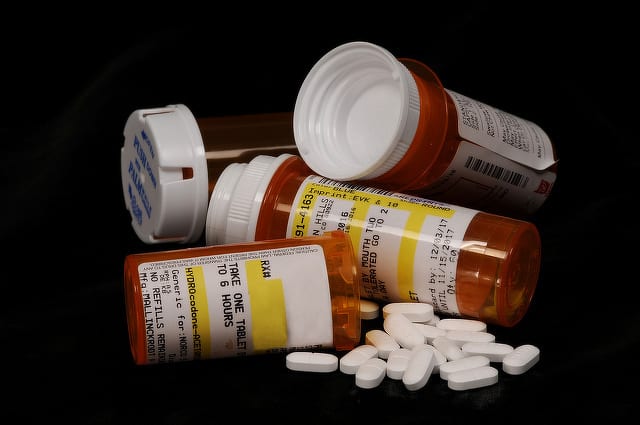By Isabel Reinert,
Pennsylvania’s opioid epidemic has left no part of the state unravaged, no demographic group untouched.
In January, Gov. Tom Wolf declared the state’s heroin and opioid epidemic a disaster. In response to the epidemic, WPSU has joined a statewide effort by Pennsylvania’s public media outlets to respond to this public health crisis and help our communities take action.
At 8 p.m. on Sept. 27, WPSU and the state’s six other public media stations will broadcast the jointly produced television program “Battling Opioids,” featuring stories of recovery and hope from across the commonwealth. In addition to this collaborative programming, WPSU will also air opioid-related programming this month during National Recovery Month, including a special “Take Note” at 1 p.m. on Friday, Sept. 28 on WPSU-FM. As part of the Battling Opioids project, we want to reach as many people throughout our coverage area and across the state as possible — through our website, shared programming, social media messaging, billboards and public service announcements. We will also be convening community conversations while we work to raise awareness of available state and local resources.
Pennsylvania has one of the highest opioid overdose death rates in the nation, and that rate has significantly increased in recent years. Provisional data from the Centers for Disease Control and Prevention estimated there were 5,655 drug overdose deaths in Pennsylvania in 2017 — more than 15 a day — most of them from opioids. That’s a 22 percent increase from 2016. The situation is likely to get still worse before it gets better, but we must do what we can to see that it does get better.
In the WPSU coverage area, just about everyone knows of someone impacted by the opioid crisis. Some rural areas in the western part of our television broadcast area — Cambria, Indiana and Fulton counties — are among the hardest hit in the state, but no community has been spared. The stories are heartbreaking — families who have spent so much money trying to save their loved ones from addiction that they can’t afford funeral expenses, people who can’t get jobs because they can’t pass drug tests, babies born addicted to opioids, grandparents raising grandchildren in their retirement years.
As part of the Battling Opioids project our website —http://wpsu.psu.edu/battlingopioids/ — features stories of hope, such as people who are years into recovery with the help of medication-assisted treatment, and promising genetic tests that can determine a greater likelihood of opioid addiction.
Pennsylvania’s public media stations joined together for this unprecedented collaboration, because we knew that if we worked together we would have the greatest chance of having an impact on this epidemic, which affects everybody, everywhere in Pennsylvania. Public media is particularly well positioned to tackle this crisis because of its commitment to reaching every community in the state and promoting the free flow of information, ideas and civic dialogue. Through this project, we have built a platform for future collaboration among the stations on important statewide issues.
We hope that the Battling Opioids programming and related station and community events help prevent opioid addiction by better educating Pennsylvanians on the process, causes and treatments of addiction. We also hope to help reduce the stigma of addiction, and — through the BattlingOpioids.org website and the @BattlingOpioids Facebook and Twitter accounts — connect people in need to existing ways to get help. We direct people to the state Helpline 1-800-662-HELP and the website www.pa/gov/guides/opioid-epidemic.
Battling Opioids is a project of WPSU, WHYY (Philadelphia), WITF (Harrisburg), WLVT/PBS39 (Bethlehem), WQED (Pittsburgh), WQLN (Erie), and WVIA (Pittston).
Executive director and general manager of WPSU Penn State



